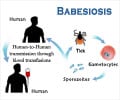Scientists at the University of Edinburgh, UK, have devised a clever method to purify parasitic organisms from their host cells, a major advance that can allow them to gain deeper
A clever method to purify parasitic organisms from their host cells has been devised by scientists at the University of Edinburgh, UK. This is a major advance that can allow them to gain deeper insights into the biology of organisms that cause millions of cases of disease each year.
Many infectious pathogens have a complex life cycle alternating between free-living creature and cell-enclosed parasite. A thorough analysis of the proteins that help them undergo this lifestyle change can prove very useful for drug or vaccine developmentHowever, separating the parasites from their host cell for detailed study has been extremely difficult to date.
Research leader Toni Aebischer has revealed that he and his colleagues worked around this problem by designing special special fluorescent Leishmania mexicana, one of the many Leishmaniases parasites.
Writing about their study in the journal Molecular and Cellular Proteomics, the researchers have revealed that they passed infected cells through a machine that can separate cell components based on how much they glow.
They say that the new approach allowed them to separated the Leishmania parasites with only about two per cent contamination, far better than current methods.
The team later successfully identified 509 proteins in the parasites, 34 of which were more prominent in parasites than free -living Leishmania.
Advertisement
Aebischer and his colleagues believe that the identified proteins can provide a good data set for continued selection of drug targets.
Advertisement
Source-ANI
RAS/L











